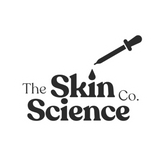Lip Balm - Base
*CONTACT US TO ORDER THIS PRODUCT AND TO MAKE ANY CUSTOMISATIONS TO THIS BASE*
Description: Lip balm base is a mixture of ingredients used as a starting point to create custom lip balms. Our lip balm base is made from Castor oil, Shea butter, Coconut oil, Beeswax and Vitamin E oil, all known for their nourishing properties for the delicate skin on the lips.
Benefits: The use of a lip balm base in skincare provides several benefits for the lips. It can help to hydrate and moisturize dry and chapped lips, soothe irritation, and provide a protective barrier against environmental factors that can cause damage to the skin.
How to use: To use, simply melt the lip balm base in a double boiler or in the microwave and add any additional ingredients, such as flavour oils or colourants, to create your desired lip balm. Allow the mixture to cool, and pour it into lip balm tubes or pots. DO NOT ADD WATER OR WATER-SOLUBLE INGREDIENTS
Common Uses: Our lip balm base is used to create custom lip balms for personal use or sale. It is a versatile base that can be used to create a variety of lip balm flavours and colours.
INCI Name: Ricinus Communis (Castor) Seed Oil, Butyrospermum Parkii (Shea) Butter, Cocos Nucifera (Coconut) Oil, Cera Alba (Beeswax), Tocopherol (Vitamin E) Oil
Recommended Amount: The recommended amount of lip balm base to use in your DIY skincare formulations is based on the size of your containers and the amount of lip balm you wish to make. We recommend starting with a small amount and gradually increasing it as needed.
Formulating tips: When formulating with our lip balm base, it is important to follow safe cosmetic practices and properly test your final product for stability and compatibility. Always use a lip balm base that is specifically formulated for use on the skin.
Disclaimer: The Skin Science Company offers premium essential oils designed to support your wellness journey. This product is not intended to diagnose, treat, cure, or prevent any disease. Please consult with a healthcare professional for advice on specific health concerns or beauty practices.



